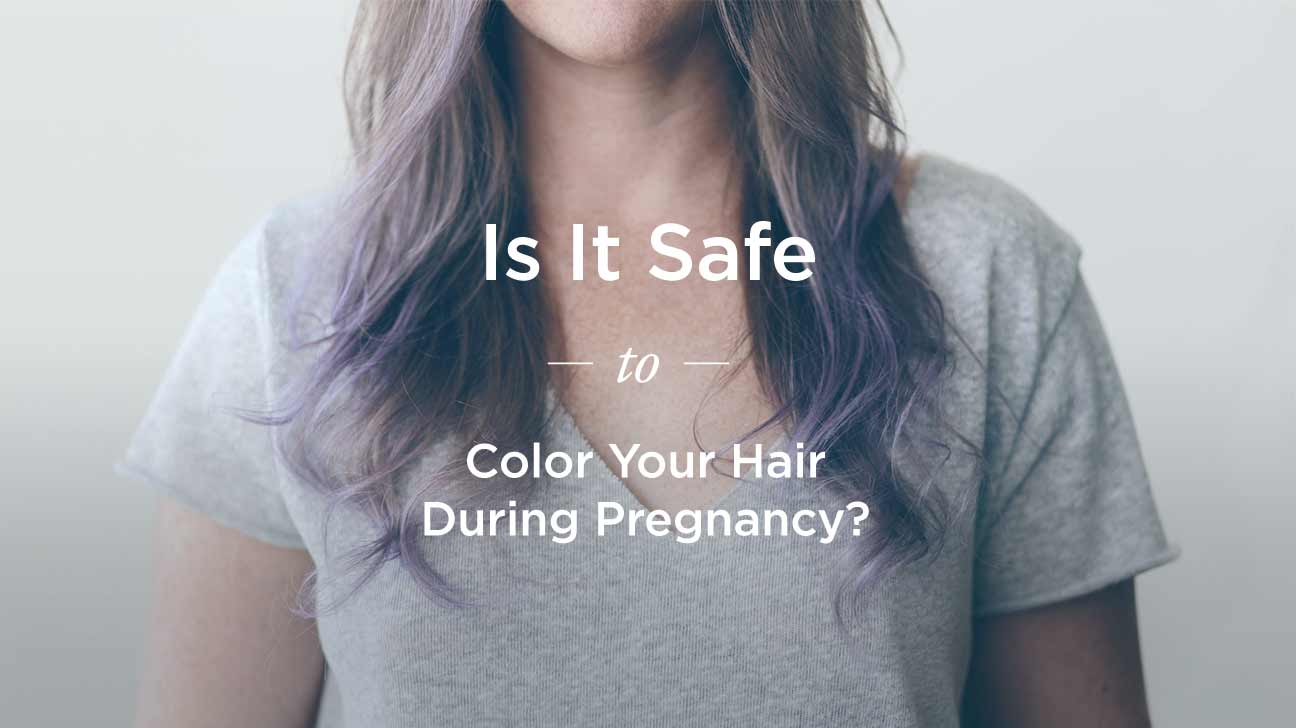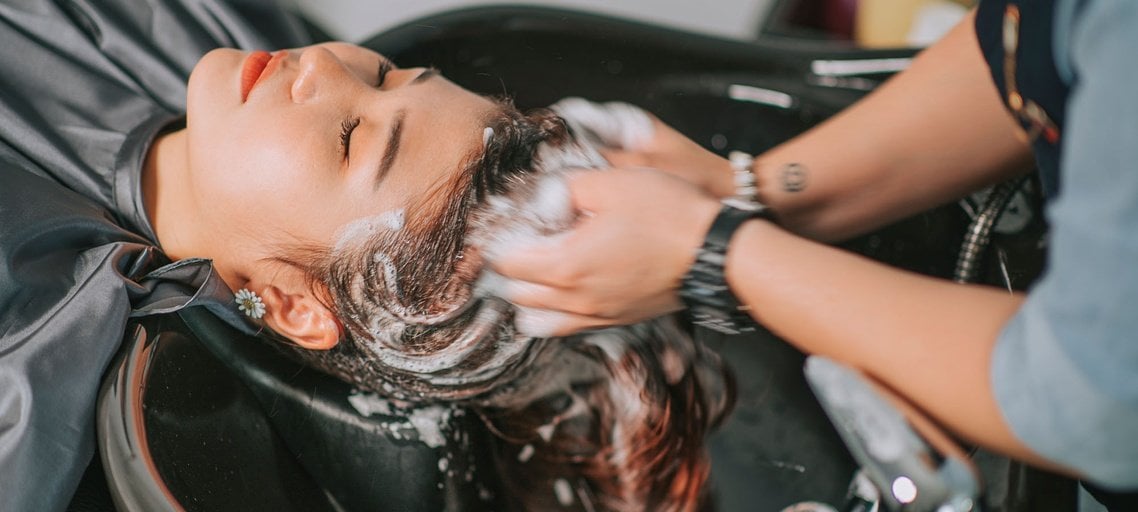Table Of Content

It’s also important to note that coloring your hair while pregnant may lead to different results than it did before baby. “Many hairstylists notice that the various coloring processes during pregnancy can be unpredictable due to the strong hormonal effect on the hair itself,” Ross says. If you want to go for a lighter shade on your head, bleaching is usually the tool of choice. And like hair dye, hair bleaching products are likely safe to use during pregnancy, but more research is needed.
Alternatives to bleaching your hair during pregnancy

With a little research, you may discover a number of options for a new color or style. Before putting any kind of color or chemical treatment on your hair, though, make sure to bring the box or a list of the ingredients and an outline of the treatment process to your doctor for approval. If you still have concerns, wait to color or treat your hair until the second or third trimester or until after you’ve had your baby. Dyeing your hair when you’re pregnant is a slightly different thing than when you’re nursing. Breast milk typically contains the same kinds of chemicals that are in your bloodstream, including what you eat and drink. This is why doctors advise against drinking alcohol or eating very spicy foods when you’re nursing.
Other Ways to Reduce Chemical Exposure
If any of these symptoms appear, you can try another hair dye or wait until later to dye your hair. Studies have shown varying results, but there have been links between increased risk of breast cancer and frequent use of hair dye. You should wait until your second trimester to color your hair.
Can You Dye Your Hair While Trying to Get Pregnant? - POPSUGAR
Can You Dye Your Hair While Trying to Get Pregnant?.
Posted: Thu, 31 Jan 2019 08:00:00 GMT [source]
Are relaxers and perm solution safe during pregnancy?
These are the foods and drinks you should avoid or cut down on to protect your baby. Your hair may react differently to bleaching than it usually does, and it might become more or less absorbent, frizzy or unpredictable. Make sure that bleach only stays on your hair as long as the package directions say. After bleaching, be sure that the product is completely rinsed out.
The small amounts of dye that may be absorbed by the scalp typically remain in the skin, making the chances of them reaching the fetus very small. For cosmetologists, the risks during pregnancy come from the amount of exposure to hair treatment chemicals, which is affected by the number of hours worked, as well as, working conditions. "Generally, as with most exposures in pregnancy, waiting until after the first trimester to dye or bleach one's hair is advisable," Aziz tells Allure. "After this period, the risk of chemical substances harming the fetus is much lower." “The most sensitive time of pregnancy in terms of fetal development is during a period called embryogenesis, and that’s through the eighth week of pregnancy,” Dr. Sterling says.
You can make dyed hair last longer during your journey of pregnancy by using sulfate-free shampoo, washing with cold water and keeping heat styling sessions to a minimum. By Larell ScardelliScardelli holds a BA in creative writing and specializes in health and wellness content, focusing on diet and supplements. However, you may be more susceptible to irritation and sensitivity if you have eczema, psoriasis, or a skin condition. Our experts continually monitor the health and wellness space, and we update our articles when new information becomes available.
Drugs & Supplements
How stars keep up their hair color while pregnant - Page Six
How stars keep up their hair color while pregnant.
Posted: Tue, 02 Jul 2019 07:00:00 GMT [source]
Still, while it’s generally considered safe to dye your hair during pregnancy, Reavey recommends avoiding it until the second trimester. “The first 13 weeks of pregnancy are critical for baby’s growth, so I’d err on the side of caution and avoid using hair dyes during this time,” she explains. Or, if you’re looking for a new hairstyle, but hesitant about completely dyeing your hair during pregnancy, Reavey recommends opting for highlights.

Ultimately, the choice to bleach or dye your hair during pregnancy is up to you and your comfort level with what's known — and unknown. "There is no evidence that hair bleach or dye chemicals cause birth defects, miscarriages, or other complications, particularly in quantities for personal use," Aziz says. There was a time when the ingredients in dyes and bleaching agents were a lot more dubious than they are today. "Are there any carcinogens in it? No. Are there any things that should create problems in pregnancy? No."
She remarked what a good client she was, only getting up once to go to the bathroom because she's eight months pregnant. And during pregnancy, all those hours coloring and cutting hair can be even more exhausting. (Hello, back pain!) Try taking breaks and sitting when you can. A hallmark of many pregnancies is having a supersensitive sniffer.
When you get a text about your upcoming hair color appointment you booked prior to finding out you were pregnant, it leaves you wondering if it's safe to have your hair bleached when pregnant. Information provided on Forbes Health is for educational purposes only. Your health and wellness is unique to you, and the products and services we review may not be right for your circumstances.
These types of hair treatment may increase the risk of harmful chemicals entering your bloodstream and passing through the placenta to the baby. If you regularly bleach, perm, or relax your hair, first consult with your ob-gyn before using these chemicals on your hair while pregnant. Once you get the go-ahead from your doctor to book the salon appointment, you may want to reconsider which service you get. According to both Ross and Reavey, previous research has shown that it’s unlikely dyeing hair while breastfeeding poses any increased risk to baby.
Reavey earned her bachelor’s degree from Ulster University in Northern Ireland. You could even have a go at the old trick of squeezing lemon juice on your hair and sitting in the sun for a few hours. It won’t have a dramatic effect, but may help you go a shade or two lighter.
Health experts generally believe that it's fine to color your hair while breastfeeding because the amount of chemicals that could reach your breastmilk is likely insignificant. This article explains everything you need to know about hair coloring and bleaching during pregnancy and breastfeeding. Your skin absorbs more of the dye the longer it's on your skin.
Plus, you’ll be using less of the product, so you might find highlights a better option than a full bleach. In addition to his current work, Dr. Amos is using his vast experience to launch Obie, a science-based app that offers personalized fertility advice. Nitha is a writer and a go-to source for the latest in beauty and fashion.
Whether you choose to color your hair at home or a salon, do it in a well-ventilated area and follow all instructions on how to use hair dye properly. You can also choose a more natural approach to hair color by using henna or vegetable dyes. Many women decide to continue to use these gentler practices throughout their breastfeeding journeys as well to minimize any breast milk exposure to chemicals. Reducing the amount of chemicals in hair coloring is never a bad choice. As of now, there is no conclusive evidence that the ingredients in hair color products cause risks for pregnant women and babies.
No comments:
Post a Comment